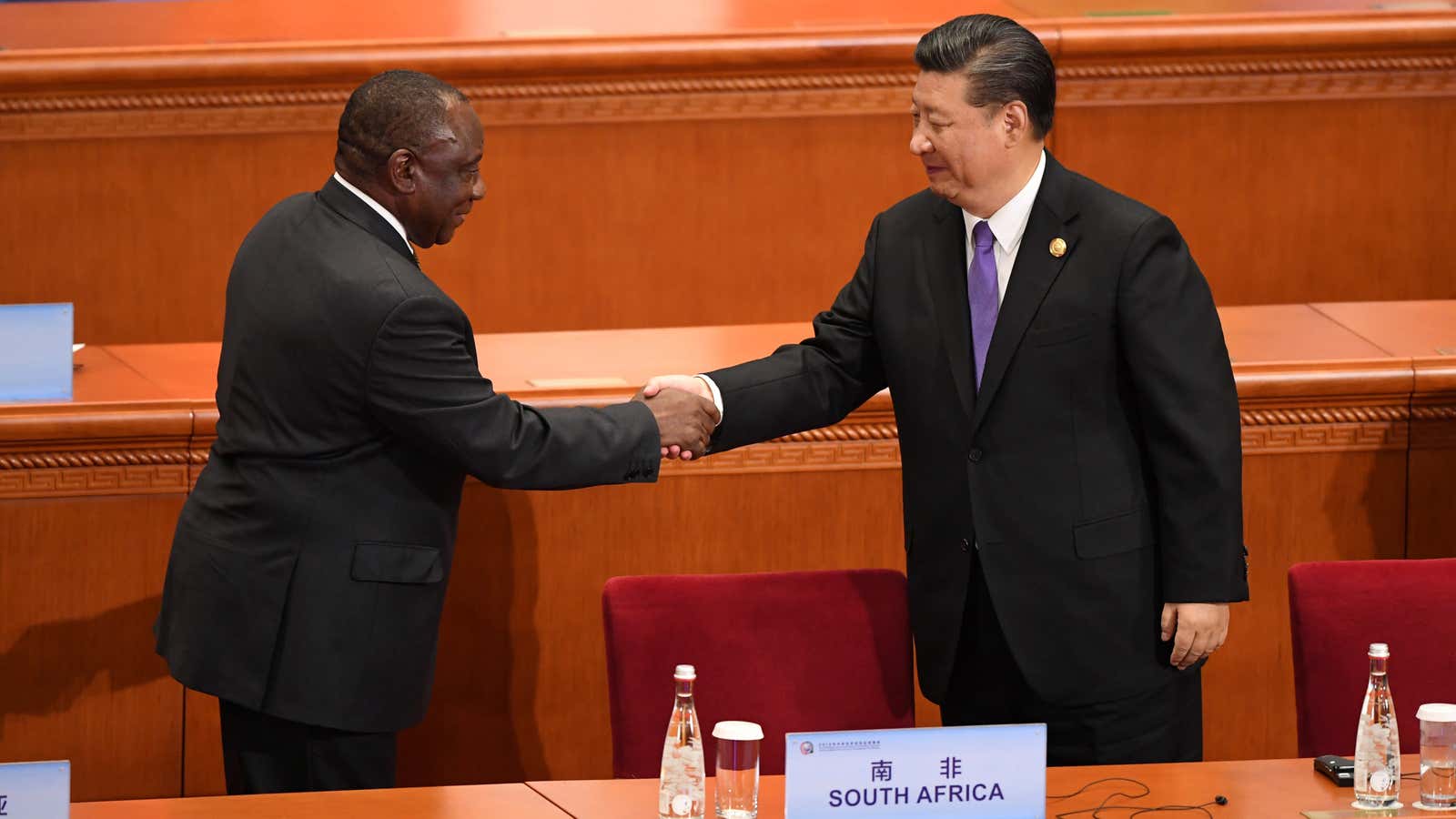Donald Trump’s unconventional approach to governance and diplomacy has encouraged China to experiment with a more confrontational diplomacy style with one its leading diplomats in Africa.
Twitter, like Facebook, is officially blocked in China, and Chinese nationals caught using the platform on the mainland can face serious consequences. But that hasn’t stopped Beijing from encouraging some of its top envoys to adopt the platform to share the government’s message with the rest of the world that doesn’t use Chinese equivalents such as Sina Weibo.
As China attempts a more transparent diplomacy, its ambassador to South Africa has emerged as one of its most skilled mouthpieces in the digital sphere. Although stationed in Pretoria, many of his tweets are targeted at China’s naysayers in Washington DC.
Ambassador Lin Songtian is a fierce critic of the current US administration. He propagates Beijing’s message and brings the digital fight to Donald Trump’s favorite turf. Since joining Twitter last September, he has tweeted over 1,000 times, often sharing news articles from China’s state-owned media organizations like CGTN and People’s Daily, raking in over 8,000 followers.
“By Chinese standards, he really stands out,” wrote Eric Olander, managing editor of The China Africa Project. “Unlike his peers, he’s not afraid of holding live press conferences in English on national South African TV or to do unscripted interviews with journalists.”
Lin is also keen to share views that are in line with Beijing’s, even if they come from people like former US secretary of state Hillary Clinton.
In many ways, Lin’s aggressive role from South Africa makes sense in the age of Trump. This White House’s Africa policy has, for the most part, sounded like an extension of its confrontational China policy. Rather than highlight the US’s economic and trade ties with African countries, much of the rhetoric from Trump officials has been to warn about China’s expanding role on the continent, particularly around issues including a Chinese “debt trap” for some countries.
“Chinese virus”
As the world battles the novel coronavirus pandemic, ambassador Lin has been among the leading Chinese diplomats voicing opposition to Trump’s use of the phrase “Chinese virus.” The phrase has widely been described by many groups in and outside the US as racist, and putting people of Chinese and east Asian ancestry at risk of public abuse particularly in the US.
But ambassador Lin has also dabbled in sharing Chinese-originated conspiracy theories about the initial source of the virus. In a tweet condemning Trump’s use of the racist phrase as “groundless and unacceptable,” Lin also wrote that “scientists with justice in the world will show us the evidence of its true origin.”
It is a reference to previous statements from other leading foreign-ministry officials claiming that Covid-19 was brought to Wuhan by US soldiers, even though there is no independently verified evidence to support the claim.
But even before joining Twitter six months ago, ambassador Lin had shown he was a different breed of envoy deployed by Beijing to become its topmost diplomat on the continent.
Described as “brash and outspoken,” ambassador Lin is viewed as “a rising star in the Foreign Ministry,” Olander wrote. His previous postings have included stints as attaché in Saudi Arabia, ambassador extraordinary and plenipotentiary in Malawi and Liberia, and then as director-general of the department of African Affairs at the foreign ministry.
The Chinese embassy did not yet respond to a request for comment from Quartz Africa.
As China almost micromanages most of its affairs, Olander believes it is reasonable to assume Lin’s mould-breaking style has the tacit blessing of the Chinese Communist Party leadership.
Lin is now being recalled to Beijing, a move which Olander says, in the continuous dueling of the US and China over Covid-19, could mean “the Chinese Foreign Ministry is changing up its roster and moving some of its people, like Ambassador Lin, to new positions.”
Whatever happens, it certainly doesn’t seem likely Lin was reprimanded for being outspoken. He was back on Twitter 24 hours after the news of his recall broke.
Sign up to the Quartz Africa Weekly Brief here for news and analysis on African business, tech and innovation in your inbox
